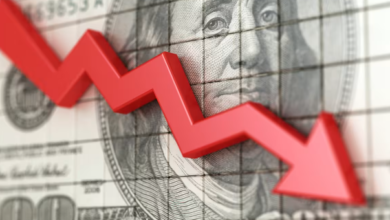7 Ways ‘Super Savers’ Are Responding to the Market Downturn


“Super savers” just have a knack for putting money away. They are the counterculture in a society where people tend to spend money as soon as they get it — or even before it’s in their wallets.
We can all learn a lesson or two from these frugal folks. So it’s probably prudent to ask how today’s super savers are reacting as the stock market tumbles.
Recently, Principal Financial Group took the pulse of these savers — defined as those who defer 15% or more of their income into retirement savings or 90% or more of the IRS maximum — and found out that they are doing the following things during this bear market.
7. Move money into more liquid assets

Super Savers who are doing this: 6%
During hard times, it’s best to have a stash of emergency cash. You might be laid off from your job unexpectedly, or find that the money you were depending on in your stock market investments is gone in a flash.
Super savers are aware of this and start to prepare long in advance of a recession. If you want to join them, check out “9 Tips for Starting an Emergency Fund Today.”
6. Move money from declining investments to less aggressive investments

Super Savers who are doing this: 7%
Selling investments as they decline is a tricky business. There are times when it makes sense to give up on your losers and move on. However, in other situations, there is wisdom in holding on and waiting for those stocks to rebound.
Unless you have a crystal ball, nobody can say for sure which approach is correct.
5. Move money from less risky investments to more aggressive investments

Super Savers who are doing this: 11%
When markets fall, stocks essentially go on sale. It often can be profitable to buy stocks in such a bear market.
Of course, it’s not that simple. Those stocks that now look so cheap could decline by a lot more. As the old saying goes, nobody rings a bell to let you know the market has bottomed out.
But clearly, some super savers are willing to take a little risk in hopes of greater returns down the road.
4. Increase aggressive investments

Super Savers who are doing this: 13%
Some people take the strategy mentioned in the last slide and put it on steroids.
Not only do they move money from less risky to riskier investments, but they turbocharge their efforts by consciously tilting their entire portfolio toward higher-risk and — hopefully — higher-returning stocks.
3. Review asset allocation for diversification

Super Savers who are doing this: 25%
When there is a dramatic change in the market — with shares either soaring or plummeting — it can quickly throw your asset allocation out of whack.
Super savers tend to be diligent, so they are aware of the need to keep an eye on their asset allocation and tweak their investments if things look amiss.
2. Confirm asset allocation aligns with investment risk

Super Savers who are doing this: 34%
It’s easy to fondly imagine you have a high risk tolerance when your stocks are doing well. But how do you feel when they fall 20% — or perhaps even 50%?
So a sinking market — like we have had for almost the entire year — is a great opportunity to get a sense of whether you have the right asset allocation for your temperament or whether adjustments are in order.
Unsure of where you stand? Read “What’s the Best Asset Allocation for My Portfolio?”
1. Make no changes to their investments

Super Savers who are doing this: 45%
Those who generate large financial wealth over many years tend to choose an investment path and stick to it.
When times are good, they invest. When times are bad, they invest.
Warren Buffett — one of the greatest investors of all time — likely would approve. He once advised that people buy an S&P index fund, and that doing so consistently “makes the most sense practically all the time.” Summing it up, the Oracle of Omaha said:
“Keep buying it through thick and thin, and especially through thin.”
For more, check out “Warren Buffett’s 2-Step Plan for Surviving a Bear Market.”
Disclosure: The information you read here is always objective. However, we sometimes receive compensation when you click links within our stories.
Source link





